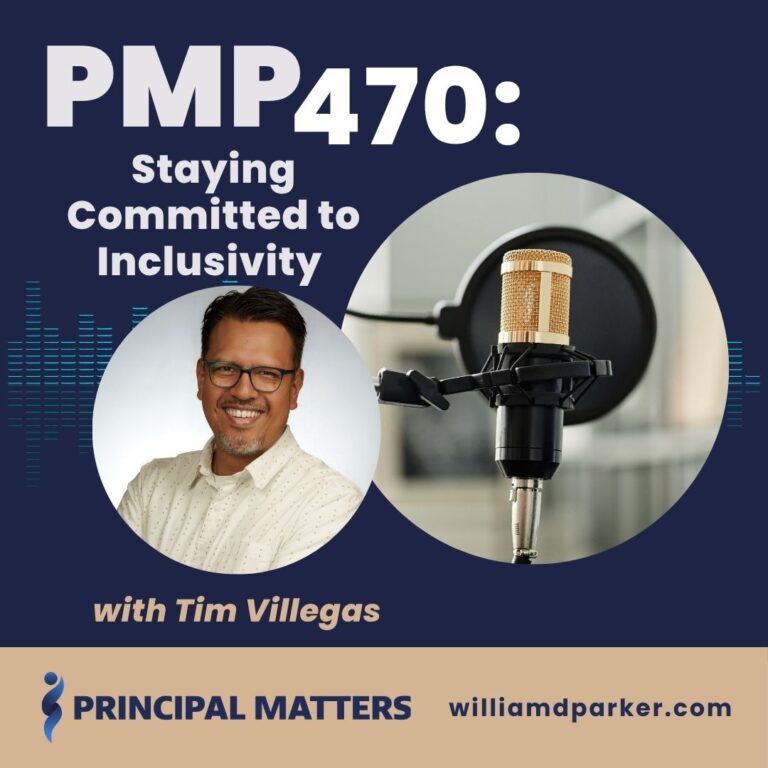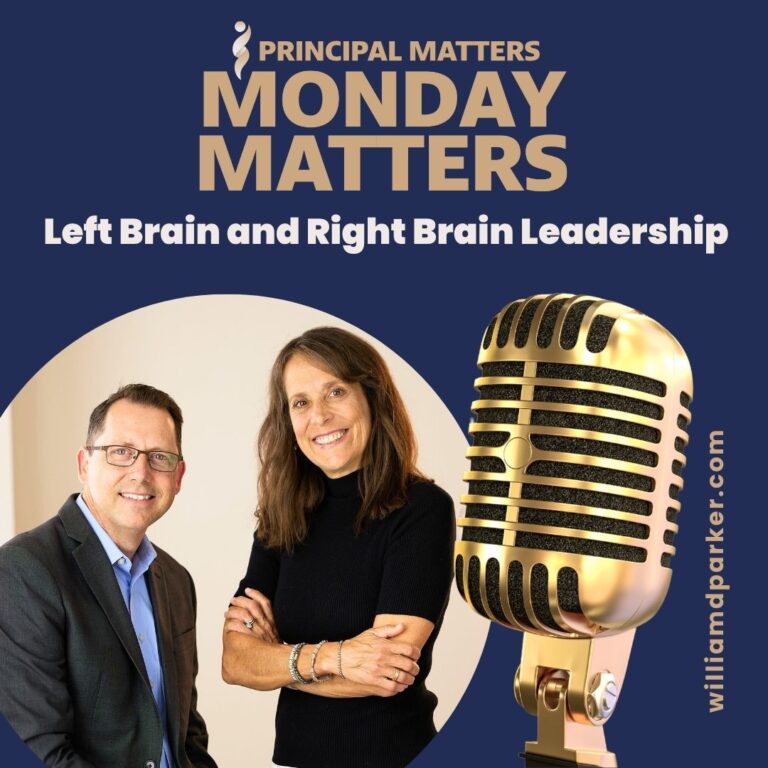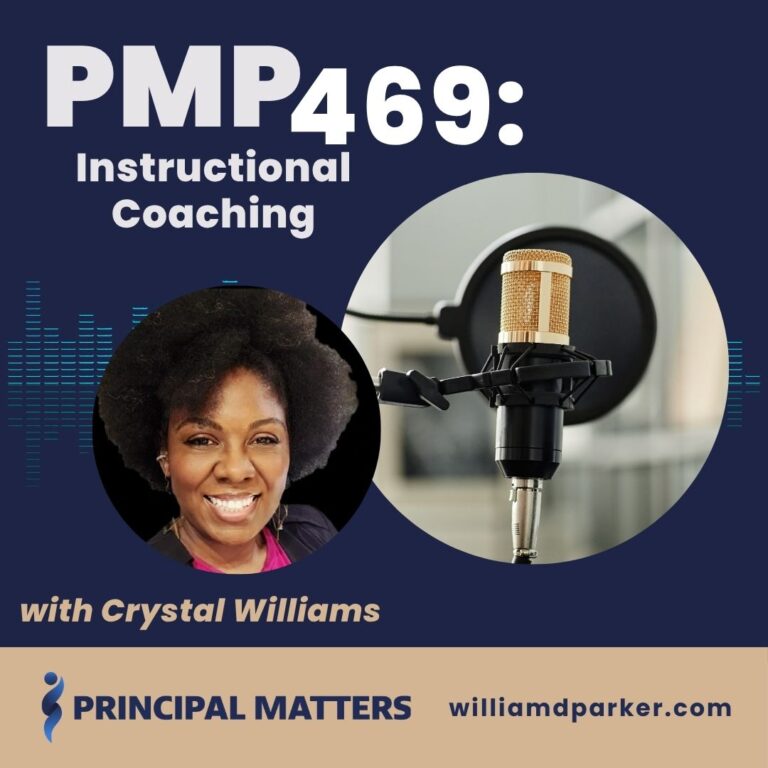Podcast: Play in new window | Download
A Quick Note to Listeners:
—- The Question of the Week is supported by Summer Pops Math Workbooks.Principals, when students practice math over the summer, math scores go up. What’s your summer math plan this year? A great way to start is by ordering FREE summer workbook samples at Summer Pops Workbooks.com. —-
Before this week’s interview, Will Parker answers a question from a student in Jen Schwanke’s graduate class at OSU.
The question is: As a principal, how do you approach difficult conversations with under-performing staff while also maintaining dignity and fostering growth? (Question from Christina Mahan, Teacher, Student in Education Master’s program at the Ohio State University)
Listen in to hear his response and thank you for doing what matters!

Meet Daman Harris:
Daman Harris, Ph.D., is a trailblazing expert in educator retention and antiracist leadership. He is the co-founder and co-director of the Building Our Network of Diversity (BOND) Project, a nonprofit that supports the recruitment, development, retention, and empowerment of male educators of color. He is also the Senior Manager for Educator Advancement and Institutions of Higher Education Partnerships for a large Mid-Atlantic school district. During his 28 years as an educator, Dr. Harris has been a teacher, coach, principal, district administrator, adjunct professor, speaker, writer, and consultant. He is also the author of The Antiracist School Leader: What Know, Say, and Do, and he hosts the podcast BONDCast. I am honored to have him as a guest on Principal Matters Podcast. Below is a summary of our conversation.
BOND:
When asked about his work with BOND, Dr. Harris shared that he started BOND when he realized that Black and latino male educators need a support network. Upon creating the Building Our Network of Diversity (BOND) Project, Daman learned that male educators of color need an opportunity to write and share their content with the world, so they created a blog and a podcast. Another realization Daman shares is that male educators of color are consistently priced out of conferences, even ones targeted to their demographic. Therefore, BOND found it necessary to create their own annual conference and provide training for people to have their own presentations at conferences. All the work the BOND does has been a resounding success; the support and guidance they provide to male educators of color is unmatched.
The Antiracist School Leader:
Dr. Harris shares that he was inspired to write The Antiracist School Leader as a result of his involvement with the BOND project. When the BOND project created a writer’s room, some of the men who were a part of that room inspired Harris to write his book. The seeds of his book were planted when he was working in a school building, and from talking to his friends who work in schools. At one point, Harris was the principal of a school where students fit the mold of students who wouldn’t achieve. Another seed of inspiration for his book is the work he was doing with his staff during this time, trying to make sure that they were able to reach all their students. When he would share this story with other school leaders, they would ask him lots of questions about how to do that work with their staff, so he realized that he should write a book to help others do the work that he was doing with his staff.
How-to Tools:
Throughout The Antiracist School Leader, Daman Harris shares how-to tools for leaders, including:
- “Educate Yourself and Commit”
- “Cast an Antiracist Vision”
- “Plan Professional Learning Experiences”
- “Encourage and Embrace Resistance”
- “Elevate Antiracist Curriculum and Instruction”
- “Monitor Your Impact”
After discussing the points above in depth, Harris highlights a few lessons for leaders to keep in mind as they examine the best approaches for their school communities. First, he tells leaders to examine their data, and tease out the disparate impact on students from different demographics. If it has been like that at your school for years, then you need to dig into why that is happening. Systems are going to system; they are doing what they are supposed to do and will not change without an effort to change them. To emphasize this last point, Daman asks listeners, “How are you changing your inputs on the system so that your output changes?”. Second, Dr. Harris tells listeners to read the book The Power of Us, a book containing tools for identity leadership. Next, he offers advice to leaders on how to help others see the obstacles students of color face by relating racism to sexism and the patriarchy, for it can be hard for people to see obstacles that they do not face. Finally, Harris reminds listeners that it is important to meet your students and your communities needs, and it is equally important to follow district guidelines. He tells listeners that they need to learn to politely comply with district guidelines while still doing what is best for students.
Advice to New or Aspiring Leaders:
Dr. Harris tells new or aspiring leaders that they need to educate themselves on topics and content related to racism and how to be an antiracist school leader. He also advises them to get the lay of the land before taking action. They can do so through researching books, podcasts, and other avenues that will allow them to learn about leading through an antiracist lens. His last piece of advice to new or aspiring leaders is to get an accountability partner, telling listeners that they are only alone if they choose to be.
Staying Connected:
You can stay connected with Dr. Daman Harris via:




